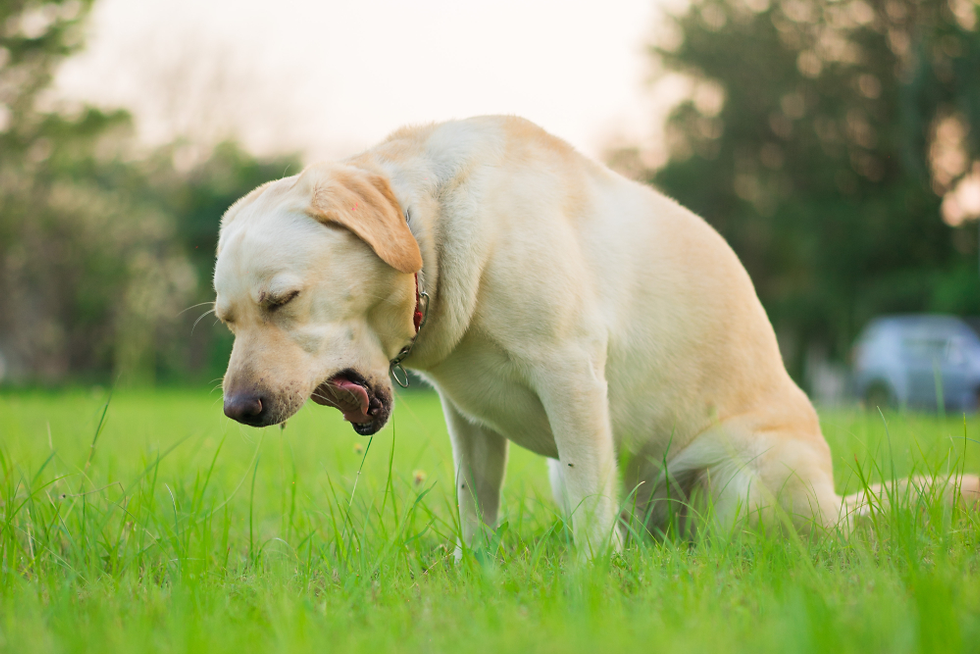Can Dogs Have Pistachios
- Esther Namawanda
- Aug 20
- 7 min read

You’re relaxing with a bowl of pistachios when oops! A few slips from your hand, and your curious dog is faster than you expected. Before you know it, they're crunching away. Suddenly, a thought hits: Wait... are pistachios safe for dogs? It's a question many pet parents have asked, often in a moment of surprise or panic.
Pistachios may be a tasty, protein-rich snack for humans, but when it comes to dogs, things get a little more complicated. While they aren’t immediately toxic, these nuts carry a mix of hidden dangers and possible benefits you might not expect.
In this blog, we break down what makes pistachios risky, what nutrients they offer, how many (if any) your dog can safely eat, and why those seemingly harmless green nuts might be more than just a crunchy treat.
Before tossing your pup a pistachio or two, keep reading. What you learn could make all the difference in protecting their health, and if you’re looking for safer, balanced options, a tailored meal plan for your pet is always the smarter choice
Are Pistachios Safe for Dogs
When it comes to sharing snacks with your furry friend, many dog owners wonder: can dogs have pistachios? The answer is yes, but with a few important precautions. Pistachios are not toxic to dogs like chocolate, onions, or grapes. However, just because they aren't poisonous doesn't automatically make them a healthy or risk-free option.
Pistachios are high in fat, which can pose a problem for dogs, especially if consumed in large quantities or on a regular basis. Too much fat in your dog's diet can lead to gastrointestinal upset, pancreatitis, or unhealthy weight gain. Moreover, most pistachios sold for human consumption are salted or seasoned, and these additives can be harmful to dogs. Excessive salt intake, for instance, can lead to dehydration or even sodium ion poisoning in severe cases.
If you’re going to feed pistachios to your dog, it’s crucial that they are unsalted, unseasoned, and removed from the shell. Pistachio shells are not only a choking hazard but can also cause intestinal blockages if swallowed. A plain, shelled pistachio here and there as an occasional treat may be fine for most dogs, but moderation is key.

Nutritional Value of Pistachios for Dogs
Pistachios contain healthy nutrients like:
Protein
Fiber
Potassium
Vitamin B6
Antioxidants
Healthy fats (monounsaturated and polyunsaturated)
These nutrients can benefit your dog in small doses. Vitamin B6 helps with brain function and hormone regulation, while potassium supports muscle and nerve function.
However, dogs don’t process fat the same way humans do. Even though pistachios contain good fats, too much can lead to obesity or pancreatitis in dogs. Safer alternatives are available through customized pet meal plans from Petly, designed specifically for their needs.
Benefits of Feeding Your Dogs Pistachios
While pistachios should never be a staple in your dog’s diet, offering them occasionally and in moderation may provide a few minor health perks. So, can dogs benefit from eating pistachios? To some degree, yes, but it’s important to weigh these benefits against potential risks.
Protein Boost
Pistachios contain a decent amount of plant-based protein, which can support your dog’s muscle development and repair. Protein is essential for maintaining energy levels, building lean muscle, and supporting immune function.
While animal-based protein is more complete for dogs, small amounts from nuts like pistachios can offer a helpful supplement, especially for highly active dogs.
Dietary Fiber
A small serving of pistachios may aid your dog’s digestion thanks to their fiber content. Fiber helps regulate bowel movements and supports gut health. That said, too much fiber, especially from fatty foods, can lead to digestive upset, so portions should be very limited.
Natural Antioxidants
Pistachios also contain antioxidants such as vitamin E and lutein. These compounds help combat oxidative stress and inflammation in the body. For dogs, this can mean support for heart health, immune defense, and even healthy skin and coat. However, your dog can get the same antioxidant benefits more safely from pet-friendly fruits like blueberries or carrots.
Although there are some potential health benefits of pistachios for dogs, they are relatively minor compared to more dog-specific snacks. The nuts are high in fat and calories, so they should only be offered sparingly and never as a primary food source.
Always serve them plain, shelled, and unsalted, and be sure to monitor your pet for any signs of digestive discomfort.

Risks of Feeding Pistachios to Dogs
Although pistachios may seem like a harmless snack, they pose several health risks to dogs that every pet owner should be aware of. These concerns often outweigh the potential benefits, especially if pistachios are given frequently or in large amounts.
High Fat Content
Pistachios are naturally high in fat, which can be problematic for dogs. Consuming too many fatty foods increases the risk of pancreatitis, a painful and potentially life-threatening inflammation of the pancreas.
Additionally, the high calorie content can contribute to unhealthy weight gain and even obesity, especially in less active dogs or small breeds. Over time, this can lead to serious issues such as joint pain, diabetes, and heart disease.
Salt and Seasonings
Many pistachios sold in stores are seasoned with salt, garlic powder, onion, or other spices, ingredients that are toxic to dogs. Even a small amount of salted or flavored pistachios can disrupt your dog’s electrolyte balance or irritate their digestive tract.
Garlic and onion, in particular, can damage red blood cells and cause serious complications. Always avoid giving your dog any seasoned nuts, no matter how tempting they may seem.
Aflatoxins from Mold
Pistachios, especially improperly stored ones, can develop mold that produces aflatoxins, which are harmful toxins known to damage the liver. Dogs are particularly sensitive to aflatoxins, and even a small amount can cause symptoms such as vomiting, lethargy, jaundice, or even liver failure.
Since you can’t always detect mold by sight or smell, this adds another layer of risk to feeding pistachios to dogs.
Choking Hazards and Digestive Blockages
Another significant risk is the pistachio shell. The hard, fibrous shell can pose a choking hazard, particularly for small dogs or those that eat quickly. If swallowed, shells can also cause intestinal blockages, which may require surgical intervention. For this reason, pistachios should always be shelled if you're considering offering one to your pet.
Feeding pistachios to dogs may not seem dangerous at first glance, but even small servings can lead to long-term health problems. If you want to give your dog a crunchy treat, there are much safer, vet-approved options to consider. Always consult your veterinarian before introducing new human foods to your pet’s diet.
Symptoms of Pistachio Poisoning in Dogs
If your dog accidentally eats too many pistachios or gets into flavored or moldy nuts, watch for the following symptoms of pistachio poisoning:
Vomiting
Diarrhea
Lethargy
Tremors or unsteady movement
Abdominal pain
Excessive thirst or urination
Loss of appetite

If you suspect your dog has eaten a harmful amount of pistachios or is showing these symptoms, contact your veterinarian immediately.
Raw vs. Roasted Pistachios: Which Is Safer for Dogs
Between raw and roasted pistachios, plain roasted (unsalted) pistachios are generally safer. Why? While neither option is entirely risk-free, plain, roasted, unsalted pistachios are generally the safer choice, if given in strict moderation.
Raw pistachios can carry a higher risk of contamination. Since they’re not heat-treated, they may contain harmful molds or bacteria, such as Aspergillus, which can produce aflatoxins.
These toxins are extremely dangerous to dogs and can cause serious health issues, including liver damage and gastrointestinal distress. Moldy or improperly stored raw pistachios are particularly risky, and since contamination isn’t always visible, it's best to avoid them altogether.
On the other hand, roasted pistachios, especially those that are plain, unsalted, and shell-free, are somewhat safer. The roasting process helps eliminate bacteria and mold spores, making them more suitable for occasional dog treats.
However, caution is still necessary. Salted or seasoned roasted pistachios often contain ingredients like excessive sodium, garlic powder, or onion powder, all of which are toxic to dogs and should be avoided completely.
To safely offer pistachios to your dog, always choose plain, dry-roasted, unsalted pistachios with the shells removed. Even then, only give them in small amounts as an occasional treat.
Overfeeding any type of pistachio, raw or roasted, can lead to digestive upset, weight gain, or pancreatitis due to their high fat content.
In short, if you’re set on letting your dog try pistachios, plain roasted (unsalted and shelled) pistachios are your safest bet. But when in doubt, there are plenty of dog-friendly alternatives that pose far fewer risks.
How Many Pistachios Can a Dog Eat Safely
As a general rule, pistachios should be considered an occasional treat, not a daily snack or meal supplement.
Here’s a rough guide:
Small dogs (under 20 lbs): 1–2 pistachios occasionally
Medium dogs (20–50 lbs): 2–4 pistachios occasionally
Large dogs (50+ lbs): 4–5 pistachios occasionally
Always watch for allergic reactions or digestive upset after offering new foods, and when in doubt, less is more.
Are Pistachio Shells Dangerous to Dogs
Yes, pistachio shells are dangerous. Dogs should never eat pistachios in the shell. The shells are tough and hard to digest, posing serious risks:
Sharp edges that may damage your dog’s digestive tract
Intestinal blockage
Choking hazard

If your dog ate pistachios with shells, call your vet immediately, especially if they show signs of distress.
To Conclude
While pistachios aren’t toxic to dogs in small amounts, they’re far from the ideal snack. The potential risks from choking hazards and high-fat content, to harmful additives and tough shells, often outweigh the limited nutritional benefits.
If you choose to give your dog pistachios, do so sparingly, opt for unsalted and shelled versions, and always watch for any signs of digestive distress or allergic reactions. Ultimately, your dog’s health and safety should come first. There are plenty of dog-safe treats that offer similar nutritional value without the risks.
When in doubt, always consult your veterinarian before introducing new foods to your dog’s diet. A well-fed dog is a happy dog, so let’s keep those tails wagging with smart, safe snack choices like a tailored meal plan from Petly.
By Esther Namawanda




Comments